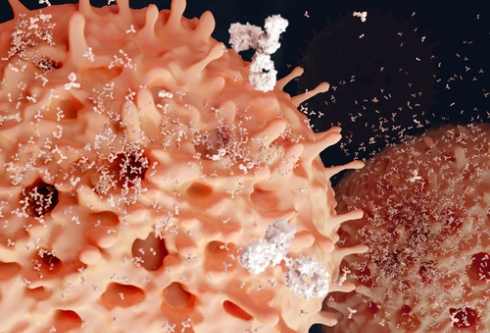Spotlight on: Immunology

The Biologist Vol 62(4) p32-33
Immunology is the study of the immune system in both healthy and diseased states. It includes the study of how the body fights infections from bacteria and viruses, and the development of medical interventions to treat and prevent diseases.
Why is immunology important?
The study of immunology is critical to human and animal health and survival. It is at the cutting edge of medical science and has led to some key healthcare advances of recent times, including vaccination and cancer immunotherapy. Immunologists are developing new treatments to some of the major diseases affecting mankind, including infectious diseases (such as influenza and Ebola), autoimmune conditions (such as type 1 diabetes) and a variety of cancers. The immune system is incredibly complex and we still have lots more to find out about how it works.
What careers are available?
Immunologists work in many different sectors. You can find immunologists working as scientists in universities; as drug developers in the pharmaceutical industry; as clinical scientists in the healthcare system; or as clinicians, nurses and vets, to name but a few.
How do I get into a career in immunology?
There are many routes to becoming an immunologist. The standard path is to study for an undergraduate degree in immunology or a related bioscience subject, followed by postgraduate study, such as a PhD, focusing in more depth on a particular aspect of the immune system. However, some people choose to go straight into work after their undergraduate course and gain additional qualifications while working.
As the discipline of immunology becomes more complex, it is increasingly utilising skills from other sectors, such as computing and bioinformatics. This means there is now increased collaboration between researchers from different fields working on immunology focused projects.
Where can I find out more?
The British Society for Immunology provides excellent careers information. More general information on immunology can be found on the British Society for Immunology Bite-Sized Immunology website.
 Emily Gwyer Findlay
Emily Gwyer Findlay
Profession: Senior postdoctoral researcher with Dr Donald Davidson at the MRC Centre for Inflammation Research, the University of Edinburgh
Qualifications: Combined BSc and MRes biochemistry, Imperial College London; PhD on T-cells and inflammatory diseases, Imperial College London
Interests: T-cells, antimicrobial peptides, in vivo models of infection
What do you do?
I work on antimicrobial peptides. These are molecules that are found all over the body, in every bodily fluid. It was once thought that these peptides just kill bacteria directly by drilling holes in their cell walls, but it is now thought that they have a wider role in the body's immune response. I'm looking at whether they are antiviral as well as antibacterial.
The work of the lab is particularly relevant because of the increasing problem of antimicrobial resistance – antimicrobial peptides could be an alternative way to control infections in the future.
What does an average day involve for you?
It's all lab work. We treat animal and human cells with antimicrobial peptides to see if it helps their defence against lung infections. I get in early at about 7:00 and set up the day's experiment – running an analysis or PCR – then I have my coffee and answer emails, before working with my mice.
What other areas of immunology interest you?
I am a specialist in T-cells – white blood cells that respond to infections. I have previously looked at their role in diseases such as arthritis and malaria. With arthritis, we found that if you could block them from accumulating in the inflamed joints, you could block the development of the disease.
How did you become interested in immunology?
I actually did a biochemistry degree and a master's, but really enjoyed my module on immunology, so I asked my course tutor if I could do a PhD and she said yes. I don't like dry chemical equations and with immunology you could see how it could help people. It's exciting, too: there's always loads of new data being produced and experiments have fast turnarounds.
Immunology is known for being incredibly complicated. Would you agree? And does it attract a certain type of person?
It is a very complicated field. I spend a huge amount of time reading – something will happen that no one has ever seen before and then you have to read 50 other papers just to understand what's going on. I think immunology attracts big-picture thinkers, rather than people who like to focus on very specific problems for a long time.
What do you think will be exciting about immunology in the future?
At the moment, everything is changing as the techniques we use advance rapidly. In particular, the way we detect bacterial species – that is, by sequencing rather than trying to grow them – means that we're suddenly understanding the massively important role our commensal flora have in our immune responses to pathogens. This is hugely interesting and the big growth area at the moment, and it is something we are all trying to understand.


